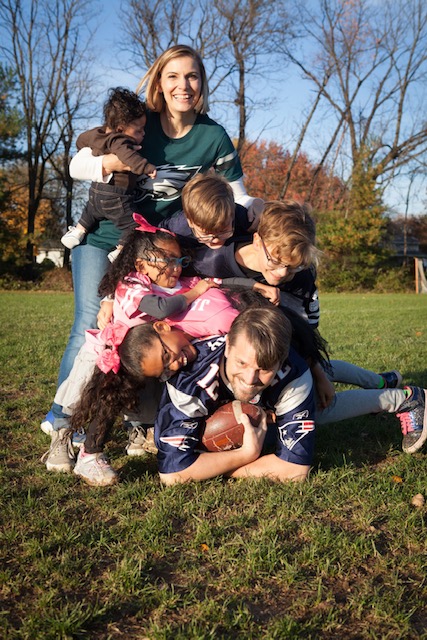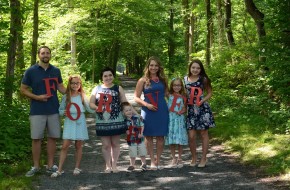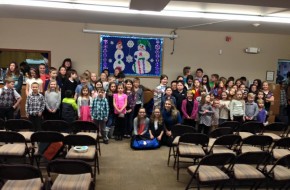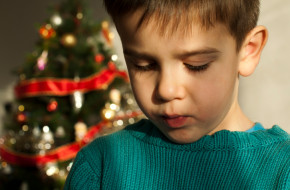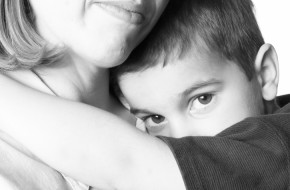In 2009, I was a new immigrant to the U.S. I was living with my daughter and son-in-law as I settled in my new country. At the time, they were foster-to-adopt parents, awaiting a placement of a child or children through five years of age, with the hope of eventually adopting.
I discovered that when you are registered to be a foster parent, things can happen quickly, suddenly in fact. My daughter and son-in-law were at work and I was in the house when I got a call from my daughter telling me it was highly likely two young girls would be arriving within a few hours.
My daughter and son-in-law soon came home and within a short time, a social worker arrived with the girls, ages 4 and 3. It was that quick! One moment we were a family of three, the next a family of five!
I have a lasting memory, one burned into my mind, of these two frightened little girls, standing in the kitchen, wearing very thin clothes—T-shirts, shorts and flip-flops—with a small plastic bag containing a couple of dollar-store toys in it. That was all they had.
They had literally just been removed from their home and had been given no time to bring anything else with them. If my experiences up to that point had not brought home the reality of what fostering meant, this most certainly did. It is a moment I will never forget.
Over the course of the next few days, we gradually got to know the two girls, whom I will call Sara and Vicky. They were full of questions, understandably a little scared. But my daughter and son-in-law did amazing things to make them feel at ease, answering their questions in a positive way, establishing a loving and safe environment for them and buying both of them clothes and toys.
Gradually, things settled into a routine and the girls seemed to adapt to their new environment. While I got along with both children, Sara and I seemed to hit it off especially well. Sara wanted to learn to dance but had never had the opportunity, so we bought her an outfit and some dance shoes and every week I took her to classes. I came to really enjoy our time together and remember those dance classes with great fondness.
I was more than a little shocked at how quickly it ended. Once again, it was all very sudden. It felt as if one moment they were with us, the next they were gone. (Of course, there had been weeks of pre-reunification visits, court dates and so on, but from where I stood it was as if I was a grandpa one minute and the next I wasn’t anymore.)
I saw the mixed emotions on the faces of my daughter and son-in-law. They knew the children were going back home—which, of course, is the goal of foster care!
But it was also painful as they had given these girls their love and were now saying goodbye. That caused mixed emotions in me as well, seeing what my daughter and son-in-law were going through as well as having to say goodbye to children who, in every sense, had become my grandchildren.
And just as Sara was about to walk out the door, she turned and ran to me and jumped into my arms. I will admit I had tears then and now as I think of that moment, but that also is a memory I will treasure forever.
I would love to know how the girls are today, but know that is not possible. I just hope they have as fond memories of me as I have of them. I feel it was an honor and a privilege to have been grandpa to these girls, even if only for a few months.
I have many warm memories of my first experience of being a foster grandparent. I saw the commitment of my daughter and son-in-law doing everything they could to make this a safe transition for these girls, facilitating the process of getting them reunited with their biological family. Even though they knew this arrangement was temporary, they gave their all.
My own father grew up in foster care. He spoke very little of his experience but he did say just how much his first foster mom meant to him. I never really understood that until I became a foster grandpa myself and then I was able to understand completely.
People say all the time, “I could never foster, I would get too attached.” But as a grandpa who lived in the home with his foster grandkids, I can confirm you will, in fact, get attached. You will love these kids like your own.
But, even if you have to say goodbye, it is all worth it! It is worth becoming attached to make a difference in a child’s life.
My dad spoke of his first foster mom with great fondness, even 70 years after he said goodbye to her. She was his mom for just a period of his life, but the impact of her love and care lasted an entire lifetime.
—Lester Wills



